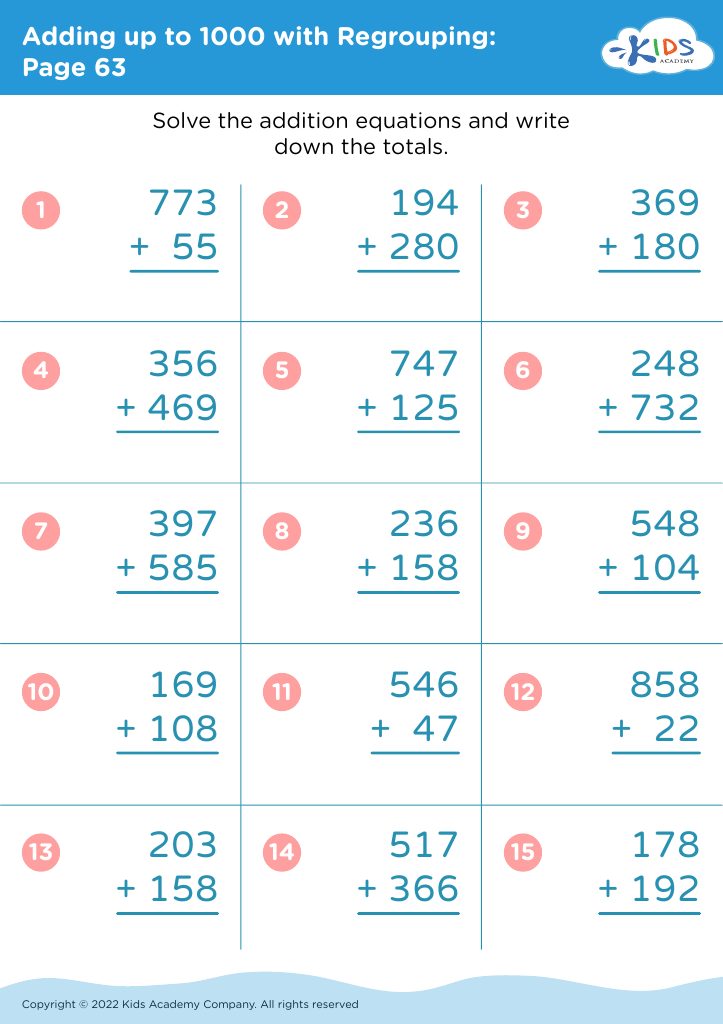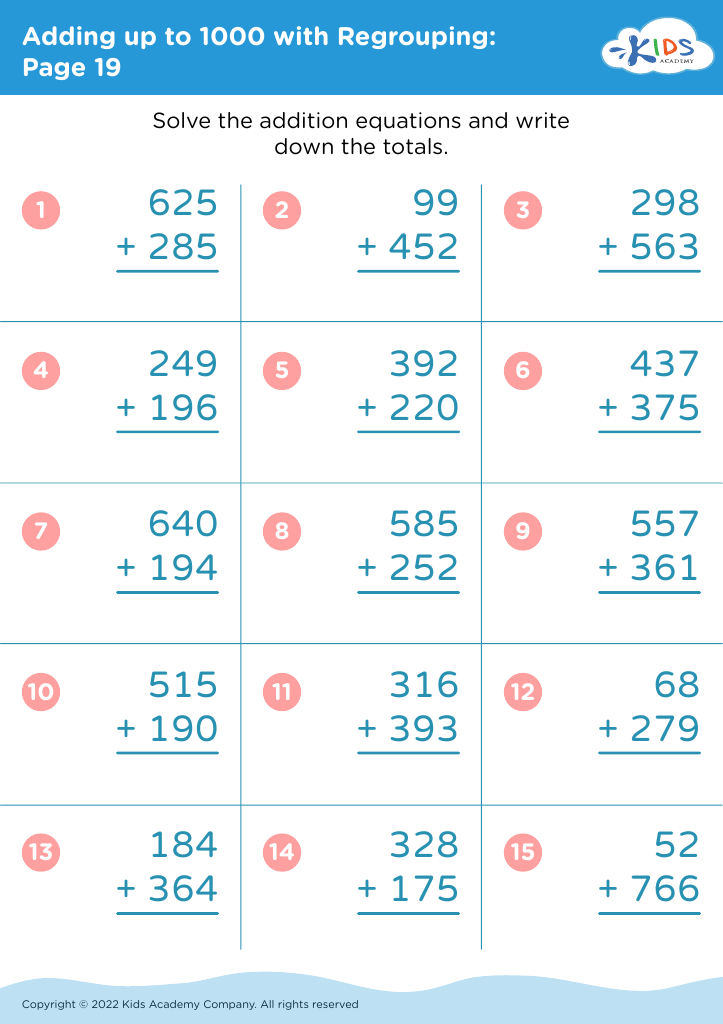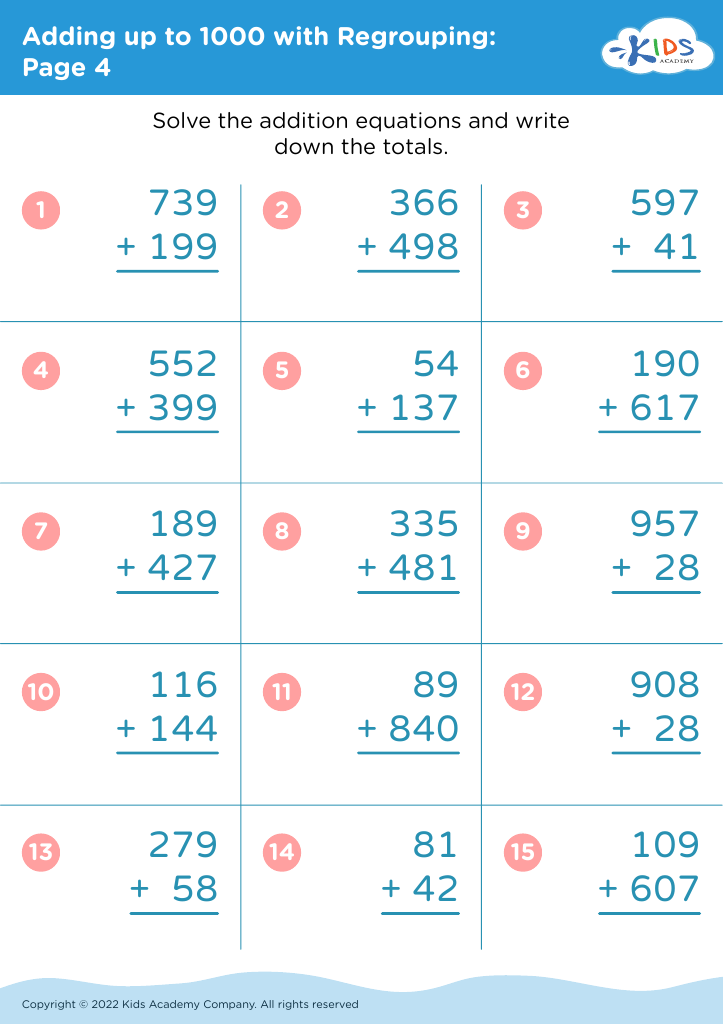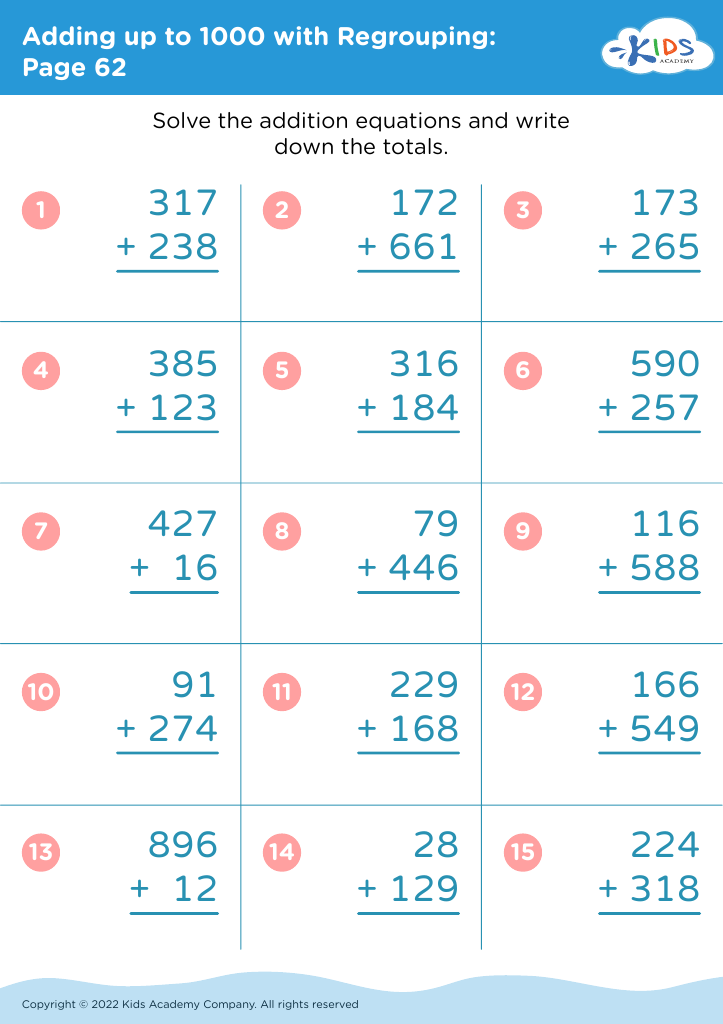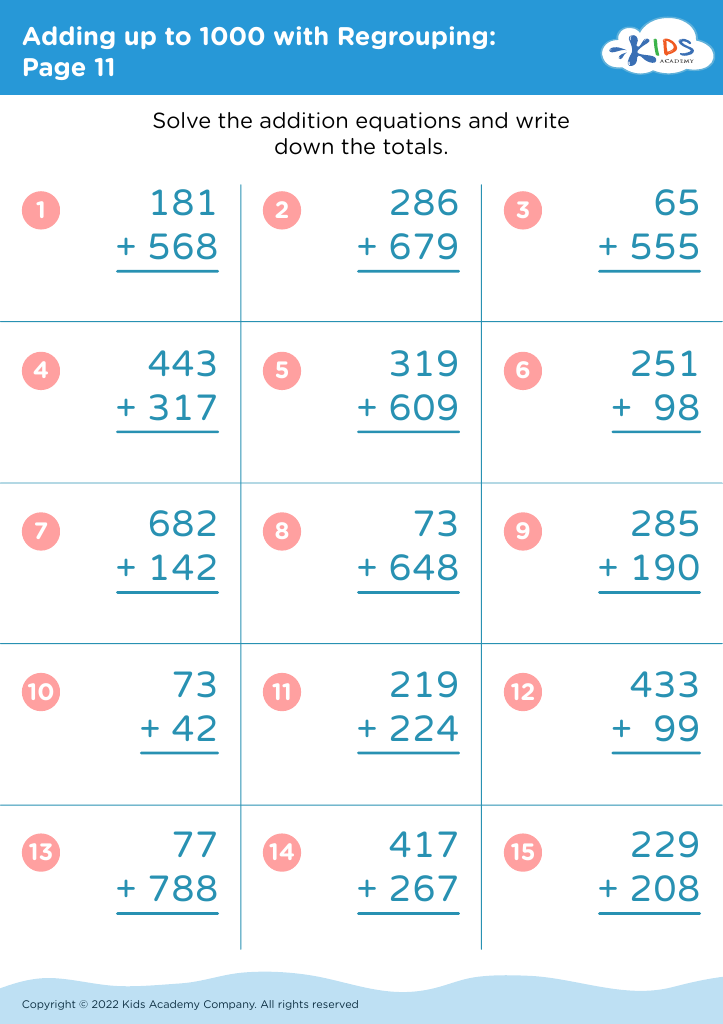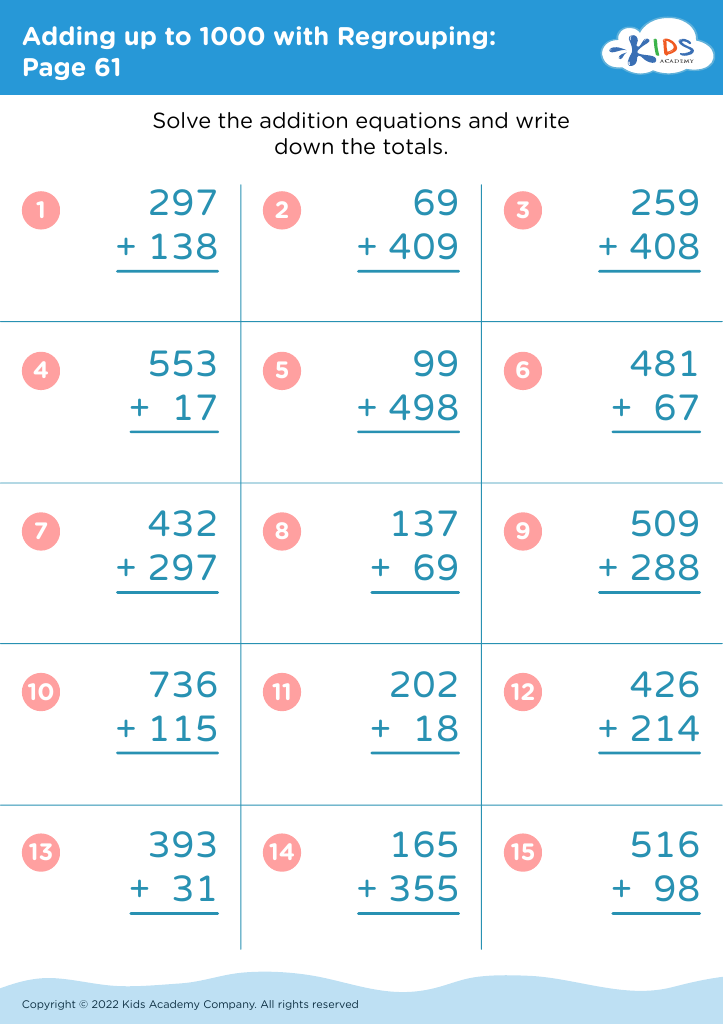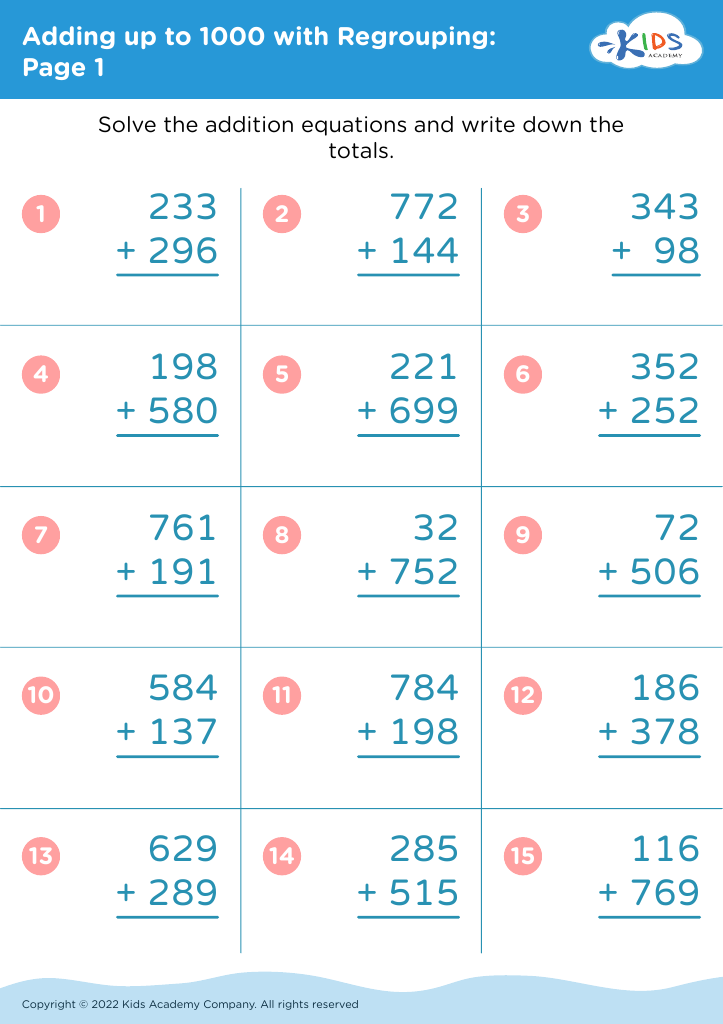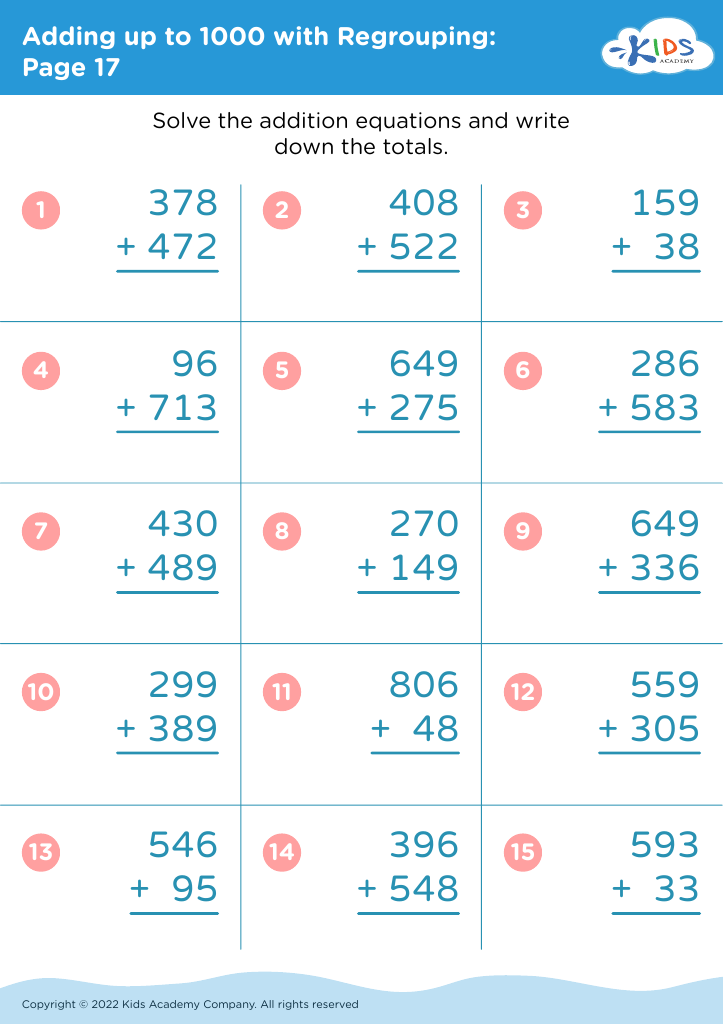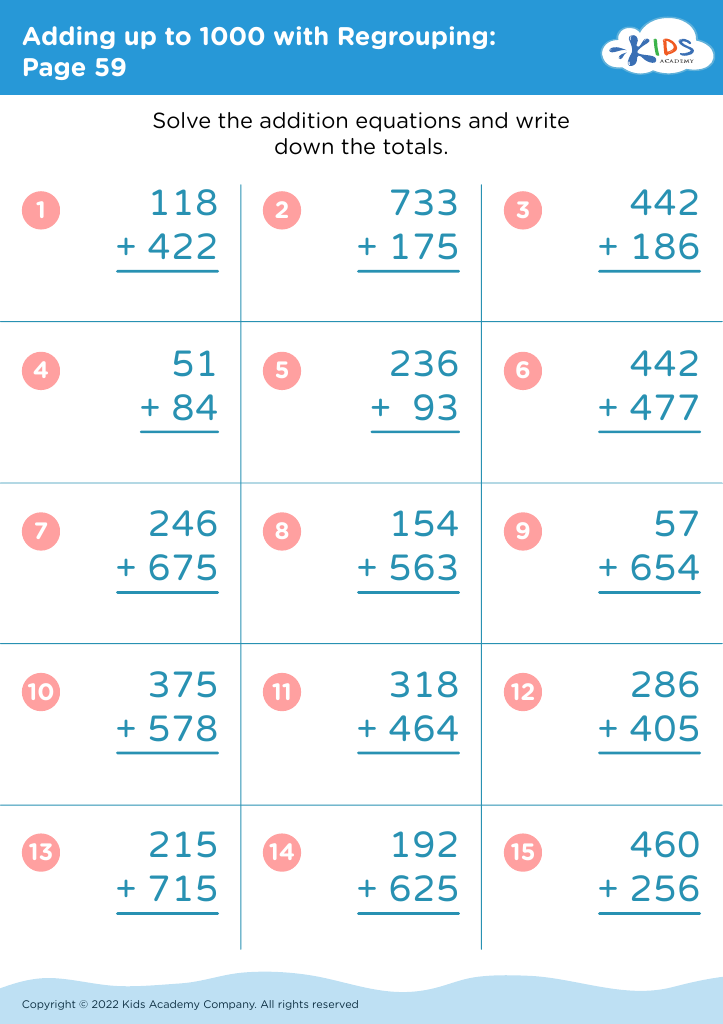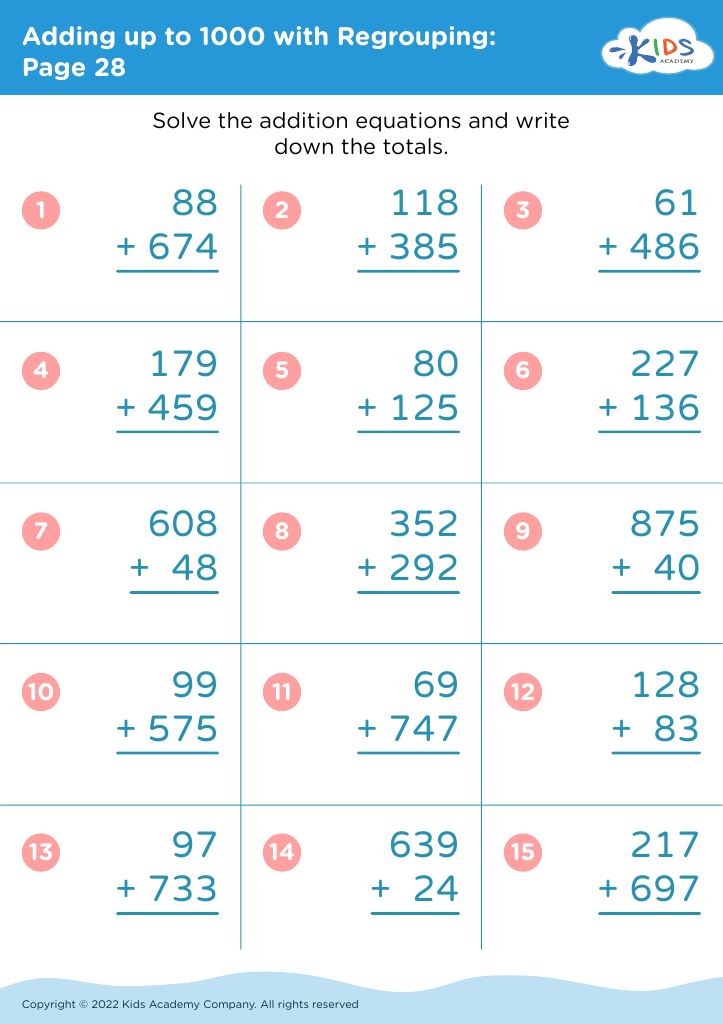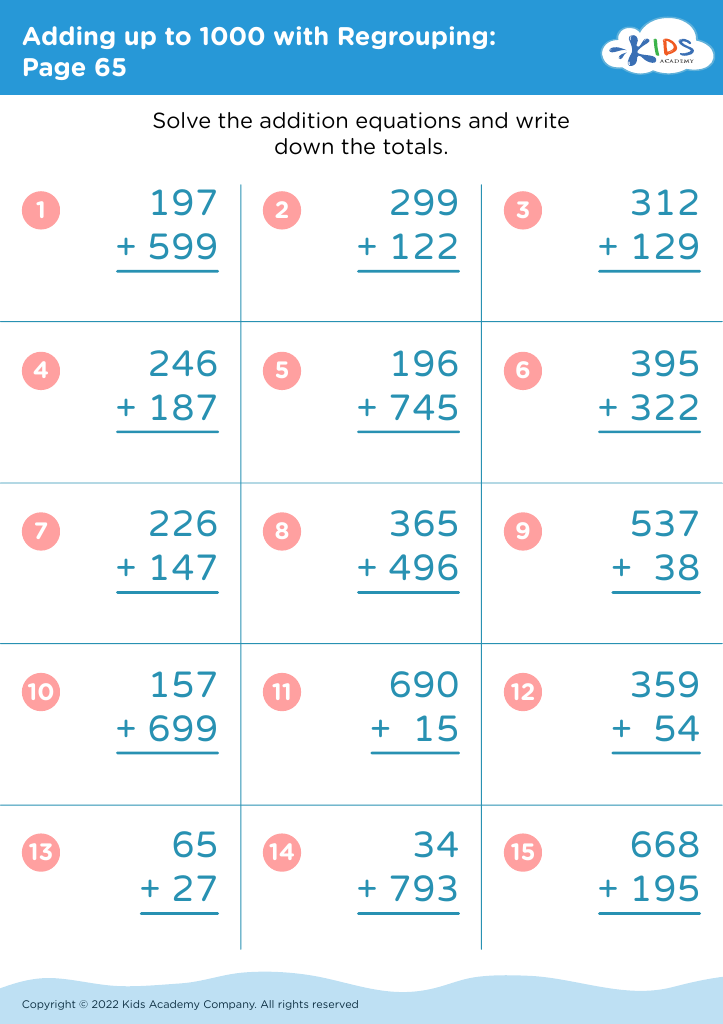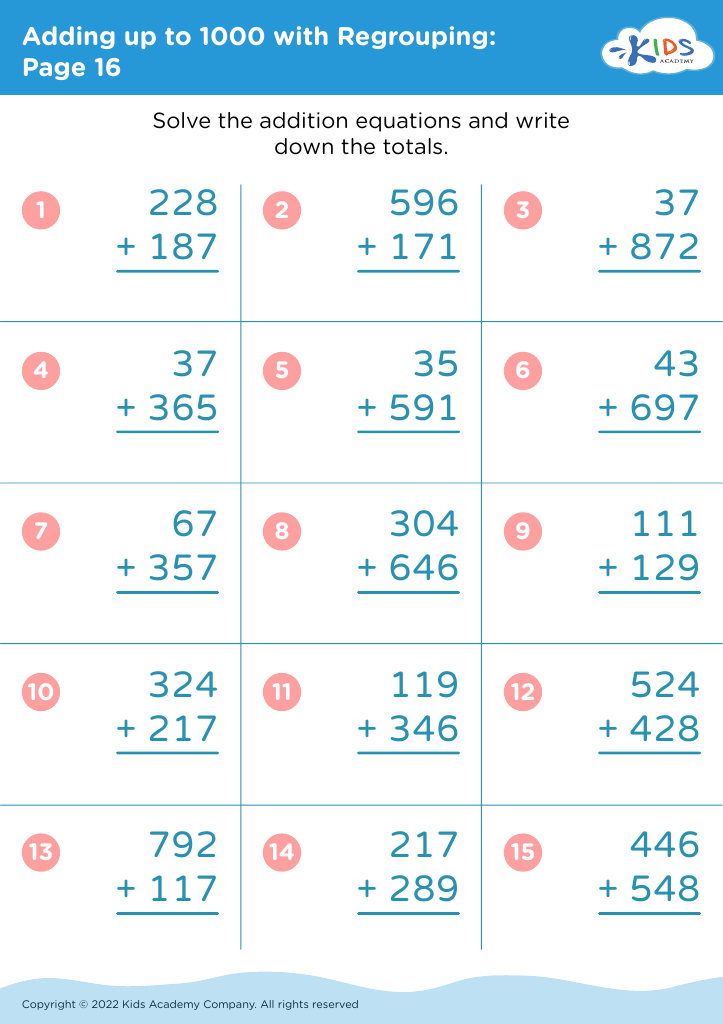Understanding fractions Adding up to 1000 with Regrouping Worksheets for Ages 5-7
18 filtered results
-
From - To
Introducing our "Understanding Fractions: Adding Up to 1000 with Regrouping Worksheets" tailored for ages 5-7! These engaging worksheets are designed to help young learners master the fundamentals of fractions and addition through fun, interactive exercises. Perfect for both classroom and home practice, each worksheet focuses on building a solid understanding of fractions, adding numbers up to 1000, and essential regrouping skills. With vibrant visuals and clear instructions, kids will enjoy enhancing their math abilities while gaining confidence in their skills. Dive into a world of math fun and watch your child’s competence and enthusiasm for fractions grow!
Understanding fractions, addition up to 1000, and regrouping for children ages 5-7 is pivotal for several reasons.
First, early comprehension of fractions builds a strong mathematical foundation. It cultivates a sense of part-whole relationships, essential for basic arithmetic, problem-solving, and advanced math concepts in later grades. For example, grasping that 1/2 is less than 3/4 instills fundamental comparison and reasoning skills.
Learning addition up to 1000 fosters numerical fluency and confidence. When young learners practice adding large numbers, they gain vital skills in mental math and estimation. This also prepares them for practical tasks like counting money or measuring quantities, enhancing their daily problem-solving abilities.
Regrouping, or borrowing and carrying over numbers, is a cornerstone of addition and subtraction. Mastering regrouping equips children to handle more complex calculations. For instance, knowing how to carry over makes solving problems like 583 + 297 feasible, smoother, and more intuitive.
Additionally, engaging with these concepts at an early age promotes critical thinking and perseverance. Children learn to methodically break down and solve problems, skills that extend beyond mathematics into all aspects of learning and life.
In summary, prioritizing these mathematical skills in early education sets the stage for future academic success and empowers children with essential life skills.
